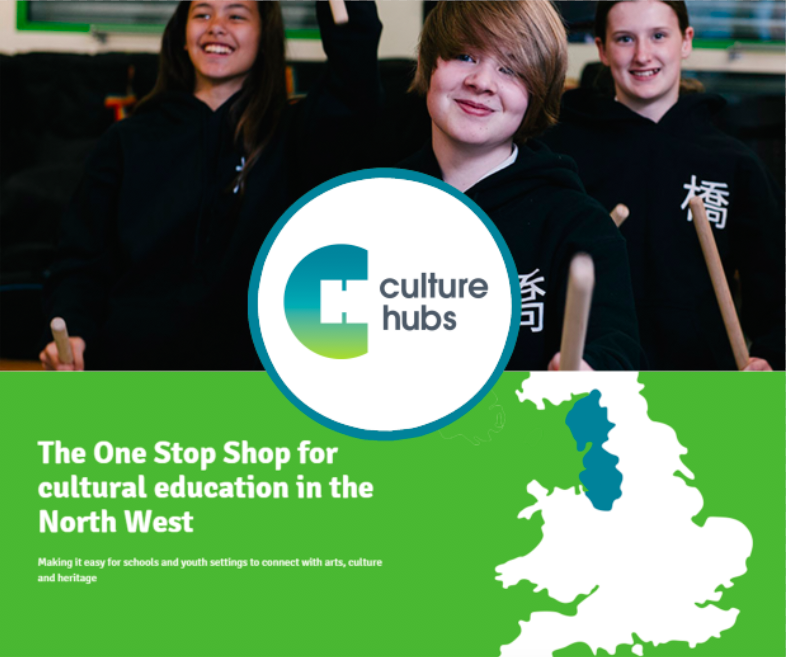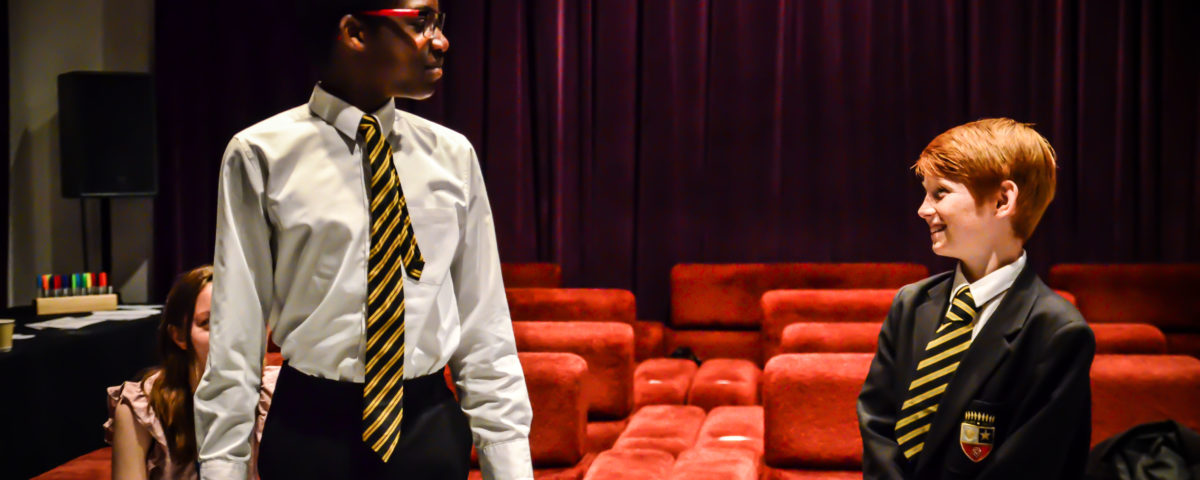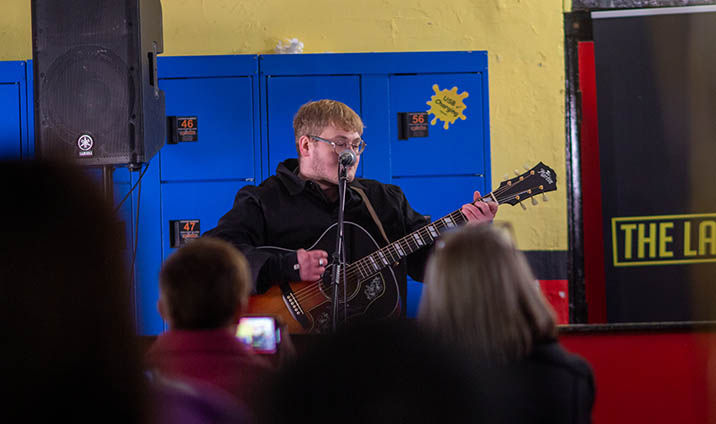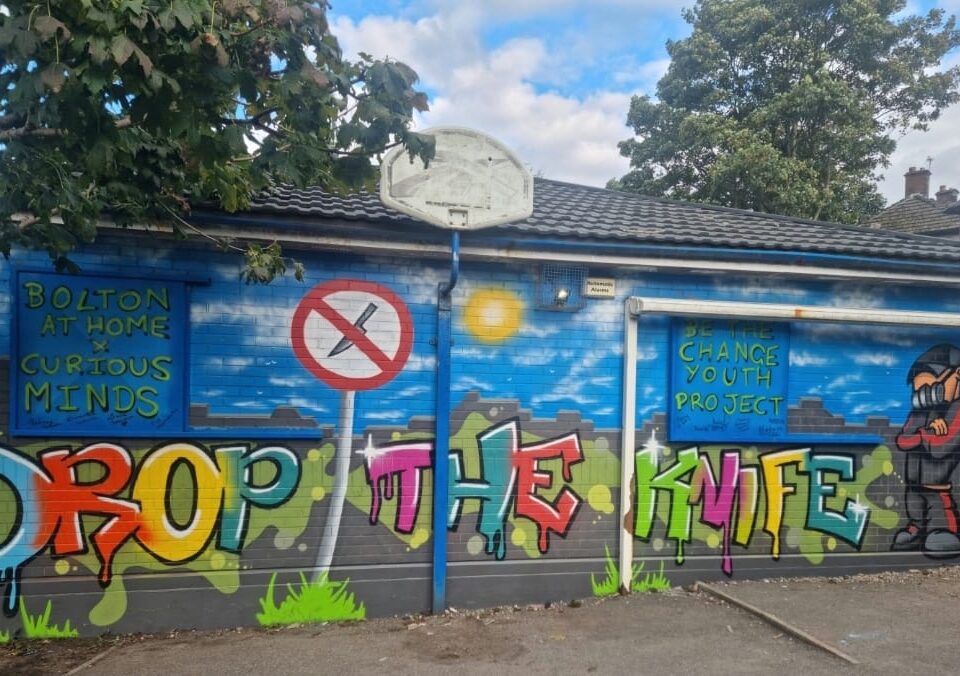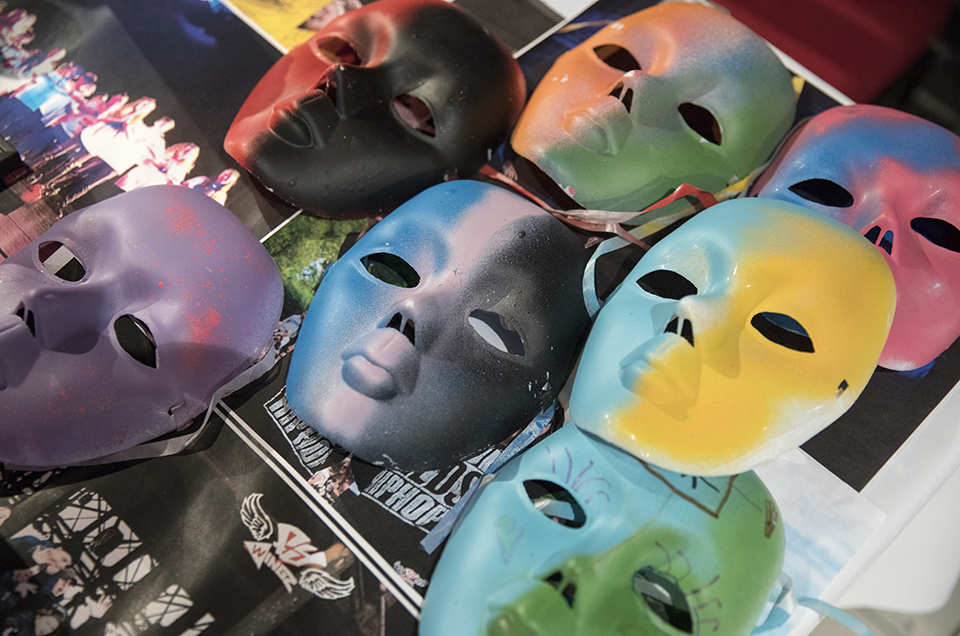
Artsmark: Latest Schools Announced
February 15, 2019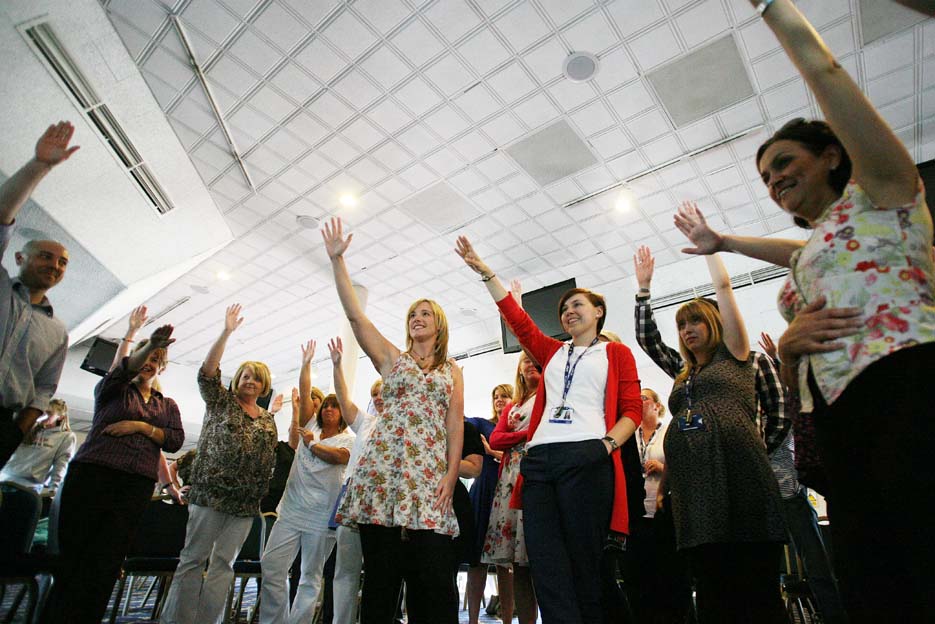
Character Foundations; Sector Response
February 25, 2019Five Foundations to Build Character
Earlier this month, Education Secretary Damian Hinds spoke about his vision.He wants to help children build character and resilience.
Hinds wants to forge better access to extra-curricular activities.
You can read the speech in full here.
You can read a summary of the sector's response here.
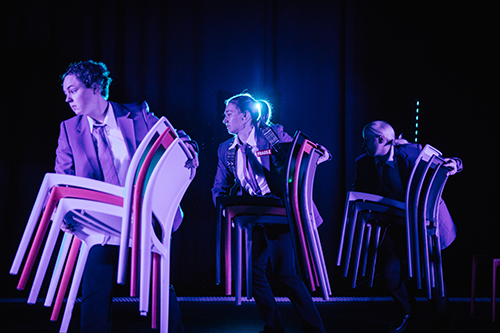
Hind’s five foundations of character are:
- SPORT traditional, competitive team sports and a wide variety of other physical activities
- CREATIVITY – which features all kinds of thoughtful and inventive activities, as well as traditional creative ones such as art, design, creative writing and composing music
- PERFORMING – which emphasises more expressive activities for individuals or in a group including: drama, theatre, dance, playing in an orchestra or singing in a choir, public speaking and debating
- VOLUNTEERING AND MEMBERSHIP – through voluntary youth groups, campaigns of particular interest to the young, or school based initiatives, as well as structured programmes like Duke of Edinburgh, or uniformed groups like the Cadets, Scouts and Guides. It also includes voluntary work
- WORLD OF WORK – from learning about careers and entrepreneurialism, to actual work experience or a Saturday job
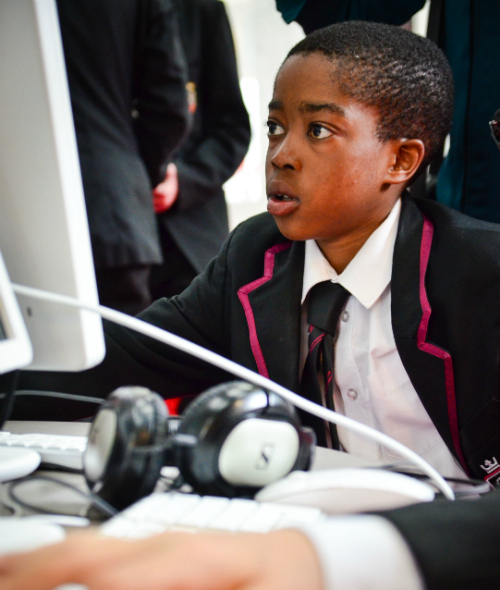
Cultural Education and Character: The Mission and the Evidence
Arts Council England, its network of Bridge organisations and Music Education Hubs are already working to achieve Hinds’ vision.We have been working hard over a number of years to ensure every child has access to art and culture.
This is what is known as the ‘Cultural Education Challenge’.
The Cultural Education Challenge
Creativity and performance are key elements of the Cultural Education Challenge.The challenge sets out that every child should have the chance to:
- Create
- Compose
- Perform
- Visit
- Experience
- Participate
- Know
- Understand
- Review
Two programmes in particular speak to Hind's Character Foundations. They are SLiCE® and Cultural Citizens.
Specialist Leaders in Cultural Education (SLiCE)®
One of Curious Minds’ most established programmes is SLiCE®Now in its fifth year, this is a fellowship programme for middle and senior leaders in schools.
SLiCE® Fellows become specialists in how to put art and culture at the heart of what schools do.
Fellowships last for a year. In that time, SLiCE® Fellows learn about the art and cultural organisations in their region.
They also find an arts organisation to partner with. They conduct their own project to explore creative and cultural approaches in the classroom.
In 2016 we commissioned Dr Sandra Hiett to evaluate the SLiCE® programme.
We asked her to focus on the impact for character education.
With a sample of 1000 children, Hiett collected assessments against 6 character strengths:
- Creativity
- Love of learning
- Perseverance
- Well being
- Teamwork
- Leadership
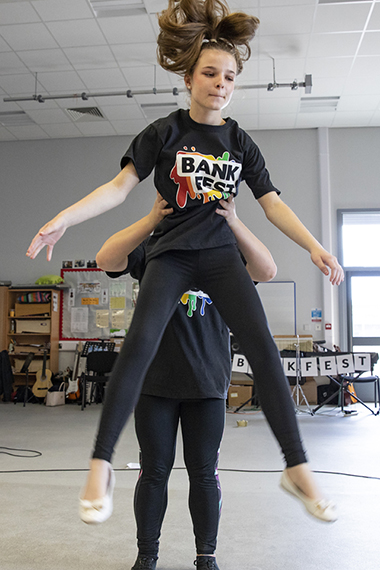
- Cultural education helped disadvantaged children make academic progress. 12% made at least one level of progress more than their more advantaged peers.
- The positive impact for progress was not just in arts subjects but in overall achievement
- All participating children gained in character strength. Disadvantaged pupils had gained consistently more than their more advantaged peers. Their scores were higher by:
59.9% in creativity
50.48% in love of learning
33.82% in perseverance
50.48% in leadership
11.27% in teamwork and
38.5% in terms of wellbeing - Cultural education created opportunities for the children to gain character strength in ways that aren’t normally available in the school curriculum.
- SLiCE Fellows observed that their disadvantaged pupils were more independent and self-reliant as learners at the end of the project
- By creating divergent and open ended learning opportunities, cultural education had allowed children to flourish in a way they were not able to within a highly structured ‘data driven’ pedagogy.
By bringing more art and culture into school through the SLiCE programme, we were able to show that:
- Cultural Education can help close the attainment gap.
- Cultural Education can support disadvantaged children to exceed their teacher’s expectations.
- Financial constraints are squeezing the cultural offer in schools.
SLiCE demonstrates that the visual and performing arts are vital to the educational and personal wellbeing of all pupils.
We found it was particularly effective for the most vulnerable children in England’s schools. - Cultural education actively developed strengths in creativity, self-esteem, teamwork, leadership, perseverance, wellbeing and a love of learning.
These qualities give young people the skills they need to succeed in life as well as education.
Cultural Citizens
In 2016-17 we were selected to deliver a pilot project for the Department for Culture Media and Sport.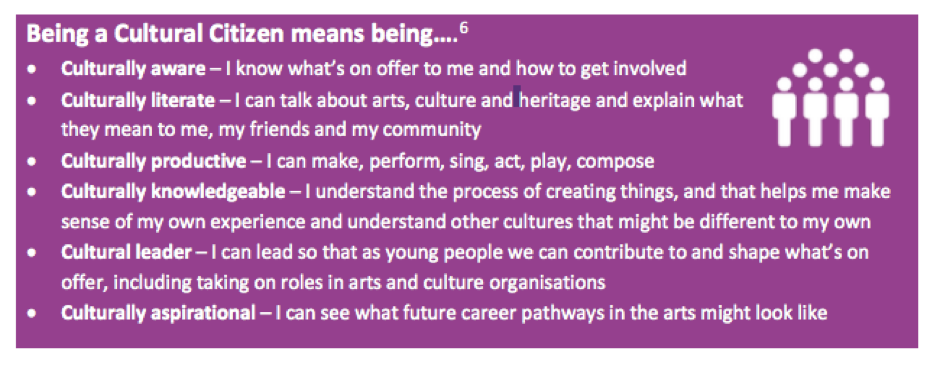
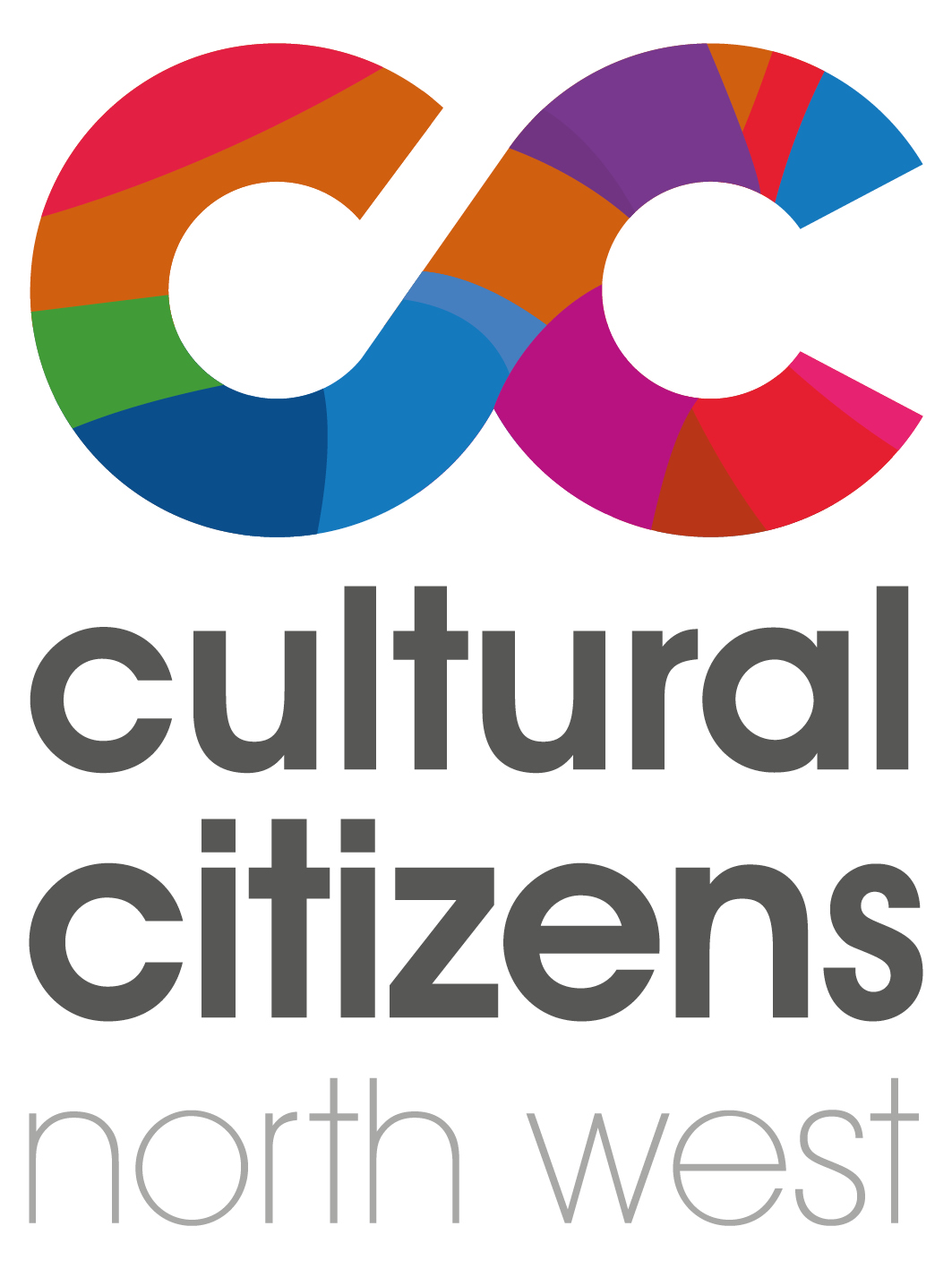
Our challenge was to work with young people aged 11-14 who did not go to arts events or venues.
Our aim was to show them what was available.
We also wanted them to be more confident to go and enjoy art and culture for themselves.
In short, we wanted them to become Cultural Citizens.
The programme was evaluated nationally. The findings were staggering!
At the end of the project:
- 60% of young people said they were confident to go to art and cultural venues in their spare time
- 67% developed their team work skills
- 65% developed their confidence
- 55% developed their communication skills
As a result they started to expand their career aspirations.
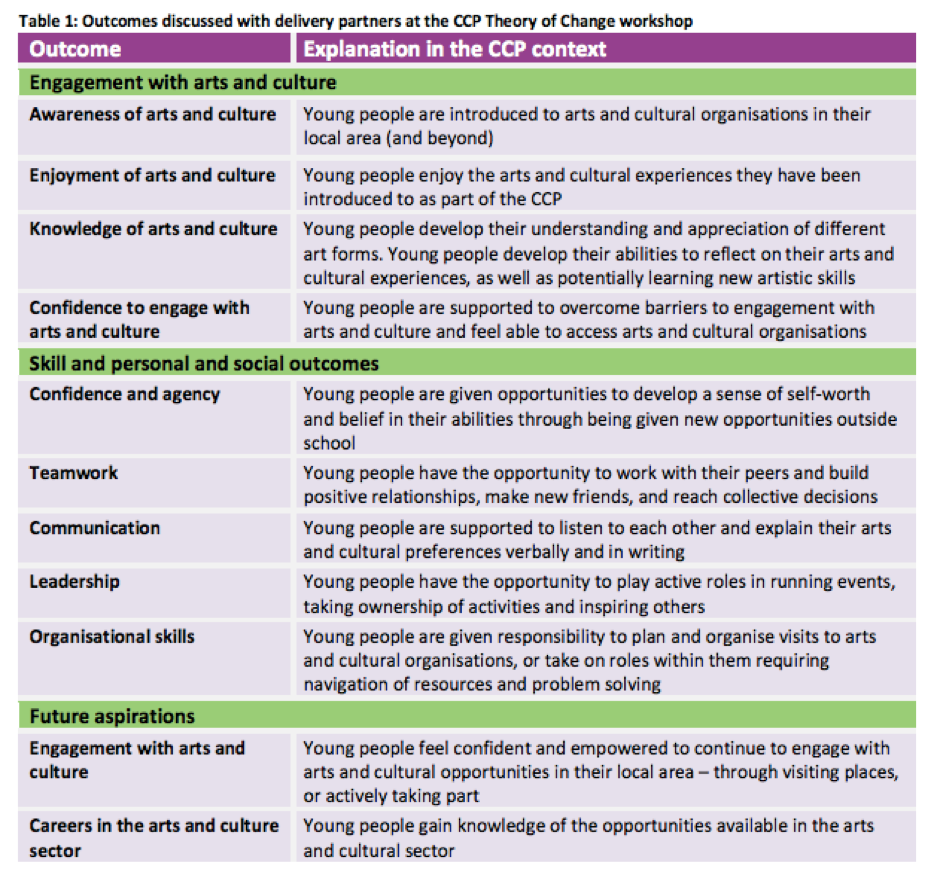
We believe our work reinforces the impact of performance and creativity for building strength of character.
What happens next?
Character Foundation BenchmarksHinds’ character foundations will form benchmarks similar to Gatsby.
The Gatsby Benchmarks are statutory for schools and relate to careers advice.
It is not clear whether these character foundation benchmarks will become will become statutory.
An advisory group will be formed of representatives from art, sport and education. It will report in September for implementation the following year.
Stating that exams and qualifications can’t be the whole picture of learning and achievement, Hinds called for a “joined up effort from the entire community”. If your school wants to find out what is on offer in the region, please do take time to explore our Culture Hubs online directory.
Next steps?
If your school is looking for a cultural partners, visit the Culture Hubs website to see what the region has on offer.
If you want to develop a Cultural Citizens project in your school or setting, contact info@curiousminds.org.uk to express interest in the roll out of this programme.
